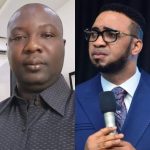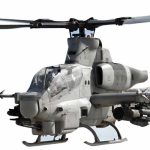...To get all news updates, Join our WhatsApp Group (Click Here)
Also Join our WhatsApp Channel (Click Here)
One of Nigeria’s leading banks private jet has been grounded by the Federal Government through the Nigeria Customs Service over failure to pay N1.9 billion import duty.
The plane, a United States-registered Gulfstream G650ER jet us said to belong to a leading Nigerian bank, signalling the commencement of government clampdowns on private jet owners over unpaid import duty running into several billions of naira.
The development came barely two weeks after the NCS began a one-month verification exercise for private jet owners in the country. The exercise which began on June 19, 2024, is expected to end on July 19, 2024.
In a public notice by the Customs, the exercise aims to identify private jet operators that have illegally imported aircraft into the country without paying the necessary import duties.
The customs had recovered about N2bn into the government coffers when a similar exercise was carried out in 2019.
At least 80 private jet owners are expected to present their import documents and aircraft certificate of registration to the Customs in Abuja during the one-month exercise.
Although the grounding of private jets which fail to pay the necessary import duty is expected to begin after the one-month Customs verification exercise, findings showed that moves by some operators to export their aircraft might have forced the NCS to begin the clampdowns on some private jet operators.
The Nigeria Customs Service had last week said some operators of foreign registered private jets were temporarily flying their aircraft out of the country apparently in a bid to evade the exercise.
However, findings by The PUNCH on Sunday disclosed that a luxury Gulfstream G650ER plane belonging to a tier-1 bank had been grounded at Lagos airport over unpaid import duties reportedly estimated at N1.9bn.
It was learnt that the NCS had written the Nigerian Civil Aviation Authority and the Nigerian Airspace Management Agency asking them to cancel the flight clearance approval given to the private aircraft.
Our correspondent gathered that the agencies had received the letters to distrain the US-registered Gulfstream G650ER with registration number N331AB and manufacturer’s serial number 6487.
The bank is reportedly owing about N1.9bn in unpaid import duties to the government on two formerly owned private jets (Gulfstream G450 and Gulfstream G550 aircraft), which according to sources have since been taken out of the country.
It was also understood that the assessment of N1.9bn was based on a verification exercise carried out by the NCS in 2021.
It was learnt that going by the current exchange rate, the N1.9bn might be raised to about N6bn. Aircraft import duties are computed based on prevailing exchange rate.
NCAA and NAMA officials said they had received the cancellation of the previously granted flight clearance approval for the Gulfstream G650ER aircraft.
According to the letter, the luxury aircraft which cost over $65m, was found to have contravened the Federal Government’s import duty regulations and as such denied the necessary Export Permit by the Customs Service Area Command at the Murtala Muhammed Airport, Lagos.
A copy of the letter written to the NCAA and NAMA, which was sighted by one of our correspondents, was titled “Re: cancellation of flight clearance approval for Gulfstream G650ER with registration N331AB and manufacturer’s serial number 6487.”
The letter read in part, “The above subject matter refers. The Nigeria Customs in its drive for enhanced revenue collection decided to do a verification exercise on private airlines operating in Nigeria.
“The verification aims to identify privately owned aircraft that were inappropriately imported into the country. This will enable the Service to perfect these Imports and collect revenue accruable to the Federal Government.
“The above-cited aircraft has been found to have contravened the Federal Government’s import duty regulations and as such denied Export Permit by the Customs Service (MMIA Command).
“In furtherance to the above, we are soliciting your kind co-operation and assistance to deny flight clearance approval”
The Comptroller General, NCS, Adewale Adeniyi, had two weeks ago said a good number of private jets were leaving the country as the verification began.
Adeniyi, who disclosed this while speaking in an interview with Arise Television, stated that since the exercise started, only a few owners have shown up.
“Very few of them (private jet operators) have showed up for verification and we gather intelligence that a good number of them are leaving Nigeria since the announcement was given because they would not want to be verified,” he said.
The CGC explained that the service introduced the private jet verification exercise because more private jets were operating outside the ambits of the law.
“We have seen so many of these aircraft flying and our record tends to show that only a few of them have shown up to pay duty and this is why we are bringing this verification up,” he said.
The CGC disclosed that data obtained from the Nigerian Civil Aviation Authority revealed that though many private jets were operating in the country, only a few had paid customs duties.
Adeniyi explained that when the exercise started sometime in 2019, the service realised N2bn.
“Recall this was not the first time we did it. We did something close to this in 2019 and the exercise fetched us as much as N2bn within the short time that we did it.
“We discovered that there are more private jets that are operating in Nigeria but have not been brought under the ambit of the law. So the data that we got from the NCAA shows that only very few of them paid customs duty to operate in Nigeria,” he stated.
According to the customs boss, the international aviation regulations show that private jets flying in the country are obliged to pay duty.
“If they are here for a brief period in the Nigerian airspace and return, they are not obliged to pay any duty; that is, if they are here on a temporary importation visit. But once they are here and are used within Nigeria, they are liable to pay duty,”
The CGC reiterated that the verification exercise was meant to confirm “aircraft operating within the ambit of the law and those that are operating outside the law.”
According to a Customs notice, private aircraft owners are expected to bring some documents for the verification exercise, namely aircraft Certificate of Registration, Nigerian Civil Aviation Authority’s Flight Operation Compliance Certificate, NCAA’s Maintenance Compliance Certificate, NCAA’s Permit for Non-Commercial Flights, and Temporary Import Permit (if applicable).
The latest clampdowns on operators of improperly imported private jets came more than one year after the Federal Government suspended the action.
In the past three years, the government had planned to recover import duty running into billions of naira from some private jet operators who had used certain technical loopholes to evade the payment of import duty.
A few private jet owners paid the mandatory import duty after the Hameed Ali-led NCS took some significant steps to recover the revenue. However, several owners and operators of private jets in the country have yet to pay the statutory duty.
Many private aircraft operators in the country have allegedly explored technical loopholes in the regulation to fraudulently obtain a Temporary Import Permit from the Nigeria Customs Service instead of paying the statutory import duty on their imported aircraft.
The TIP, which is valid for an initial period of 12 months, can be extended by six months twice, according to the regulations.
However, several operators of private jets in the country have continued to extend the TIP indefinitely, a development that prompted the Customs to effect past clampdowns.
According to new findings, no fewer than 80 private jet operators are expected to present their aircraft import documents for verification during the one-month exercise.
The TIP has been described by some stakeholders as a fraudulent means of evading the mandatory import duty. Importers of private jets, especially foreign registered private jets, are expected to pay five per cent of the value of the private jet as import duty.
However, due to the high cost of private jets, some owners often prefer not to pay the import, according to Customs officials.
Instead, the operators prefer to obtain a TIP under the guise that the aircraft is coming into the country for a temporary period, quoting the International Civil Aviation Organisation Convention Article 24 which focuses on Customs waiver for commercial aircraft operating in a country temporarily.
But the new leadership of Customs appears poised to get all operators to pay the import duty.
Unconfirmed sources said the government might get close to N100bn in unpaid import duty on imported private aircraft due to the high exchange rate.
This analysis is however dependent on whether the Customs chooses to implement the 25 per cent penalty fee such aircraft owners are meant to pay for delayed payment. The 25 per cent penalty fee is in addition to the statutory five per cent import duty.
Meanwhile, National Public Relations Officer, NCS, Abdullahi Maiwada, recently confirmed the verification exercise, which began two Wednesdays ago.
Sometime in 2021, about 17 owners of foreign-registered private jets, comprising top business moguls, leading commercial banks, and other rich Nigerians, dragged the Federal Government to court, seeking to stop the grounding of their planes over alleged import duty default.
This came after the Federal Government approved the decision of the Nigeria Customs Service to ground about 91 private jets over their alleged refusal to pay import duties running to over N30bn.
The NCS had in 2021 embarked on a review of import duties paid on private jets brought into the country since 2006.
At the end of the 60-day exercise, 57 private jets, which had licences for commercial charter operations, were cleared and issued Aircraft Operators Certificates by the Customs.
However, 29 private jets, whose owners came for the verification, were found to be liable to pay the import duty.
The Customs also compiled a list of another 62 private jets whose owners failed to appear for the verification exercise but were found liable for import duty payment.
You can get every of our news as soon as they drop on WhatsApp ...To get all news updates, Join our WhatsApp Group (Click Here)
Also Join our WhatsApp Channel (Click Here)

















